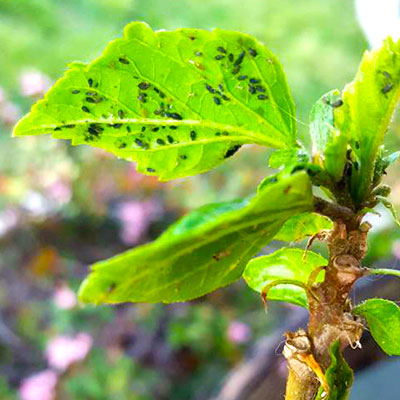Question of the Week – Number One: March 28, 2019
“What are these insects that are all over my plants?”
These are aphids, also known by many gardeners as “plant lice.” They’re common in cool weather (on daylilies, ornamental cabbage, pansies and other tender new growth), but you’ll also see some species (crape myrtle aphids, pecan aphids) show up in mid-summer.

Aphids are massed along the stem of this ornamental kale as winter winds down. At this point it’s easiest just to remove cabbage and kale from the winter landscape.
My good friend and fine entomologist, the late H.A. Turney of the Texas AgriLife Extension (or, as H.A. and I knew it, the Texas Agricultural Extension Service), taught me 49 years ago that you could always recognize aphids in these ways:
• Pear-shaped bodies;
• Between pinhead- and BB-sized;
• Come in a variety of colors;
• Congregating on tender new growth;
• Present in rapidly increasing populations;
• Give birth to living young without mating, especially during the warm months; and
• Have twin “exhaust pipes.”

Aphids come in all colors, including these vibrant golden orange aphids on tropical milkweeds.
Aphids have piercing/sucking mouthparts. Here are some of the ways they can damage your plants:
• They can cause distorted growth as they suck sap out of the plants’ tissues.
• They can act as vectors for diseases as they feed.
• They secrete sticky honeydew resin as they feed. That honeydew coats leaves and hard surfaces below.
• Sooty mold, an unattractive black fungus grows in the honeydew substrate. It can render the leaves, trunks and hard surfaces quite unattractive. (See related story on our cleaning our driveway in this issue.)

These black aphids are to be expected when you overwinter tropical hibiscus indoors or in a greenhouse.
Methods of controlling aphids…
• You may be able to blast them off with a hard stream of water, but be careful not to damage tender new plants.
• Natural predators such as ladybugs often can help.
• Most general-purpose organic and inorganic insecticides will eliminate aphids.
